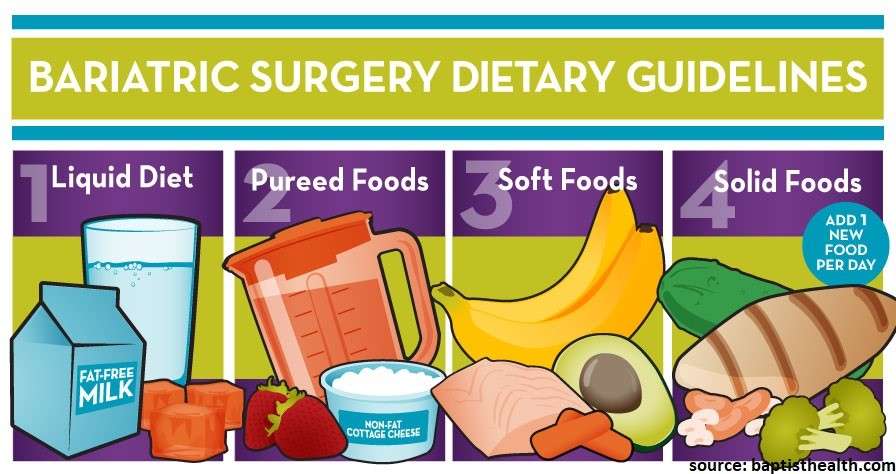Bariatric surgery in Mumbai is an accepted and recognized option for helping people lose weight. It can also address various complications linked to obesity. Medical studies also show that weight loss surgery has a significant role in the metabolic and hormonal changes that control both hunger and satiety.
However, the effectiveness of a bariatric surgery depends on various factors.
Effectiveness of Bariatric Surgery
The effectiveness of bariatric surgery majorly depends upon the kind of bariatric surgeon in Mumbai considering other factors as well. Some of them are:
- Form of procedure performed
- Your unique circumstances and conditions
- How closely you follow your post-surgical plan
- Successful bariatric surgery helps you lose between 10 to 35 percent of your total body weight in two to three years.
After you have a successful bariatric surgery, the most common question you may have is what form of diet you must follow.
Bariatric surgeon in Mumbai provide you with a customized diet plan depending on the surgery, lifestyle, and health factors. However, most of these bariatric diet plans contain some standard guidelines.
We have created a common outline of what you can expect a normal pre-and post-operative diet to contain.
Pre-surgery Diet
Pre-surgery bariatric diets are generally low in carbohydrates and high in protein. This form of diet decreases bleeding and encourages healing.
A pre-surgery diet also helps you to lower your fat amount in and around your liver and abdomen. It is because fat leads to an enlarged liver that can make surgery harder by obstructing the surgeon’s view.
Weight loss before surgery not only keeps you safe during the procedure, but it trains you in adopting a new way of eating foods. Having lifelong changes to your eating is essential for lasting and successful change after your surgery.
The pre-op diet mostly consists of protein shakes and other rich-protein, low-calorie foods that are easy for you to digest.
As your surgery date comes, you may have to start following a mostly-liquid or liquid-only diet.
Depending on your weight and complete health, your doctor may permit you to eat certain solid foods. Also, you may have to consume some vitamins to ensure you are receiving the proper nutrients.
Post-surgery Diet

Post-surgery bariatric diets consist of different stages. Your dietician or doctor will determine how long every step will last and what you will eat and drink.
Portion regulation is vital at each stage. These are some essential habits that can help you to lose weight consistently. It can also prepare you for the way you will consume food for the rest of your life.
Stage one: Liquid diet
For the first few days following the surgery, you will only be permitted to have a few ounces of clear liquids at a time. This helps your stomach to heal without food, stretching the stomach out. After clear liquids, you will move to additional forms of fluid that may involve:
- Decaffeinated tea and coffee
- Skim milk
- Thin broth and soup
- Unsweetened juice
Stage two: Pureed diet
Once your doctor says you are ready, you can start consuming pureed foods that contain a thick and pudding-like consistency.
You can puree several foods with a food blender or processor. V-8 juice and first-stage baby foods that do not contain solids are also convenient options.
Stage three: Soft diet
Many bariatric patients will not move into this stage until they are between six and eight weeks following the surgery. However, once you are ready, you can start incorporating soft, easy-to-chew foods into your diet, including:
- Soft-boiled eggs
- Canned fruits
- Ground meat
- Cooked white fish
Stage four: Stabilization
This final stage takes place when solid foods are reintroduced into the diet. It often starts around two months after your surgery.
You will have to continue chopping your food into small bites, as your stomach will be smaller and huge pieces of food can cause problems.
It would be best to reintroduce food slowly to find out which ones your stomach can manage and which ones it cannot.
Avoid foods that are difficult to digest. This involves stringy vegetables or fibrous, popcorn, bread, bread products, and fried food.
A Healthy Diet for Life
After four months following surgery, you may resume eating normally. However, portion control will go on to be necessary. Your diet must primarily include lean protein, fruits, vegetables, and healthy carbohydrates.
If you want to find out whether you qualify for bariatric surgery, consult a bariatric surgeon like Dr. Harsh Sheth. He will help you understand the procedure requirements according to your health condition.

